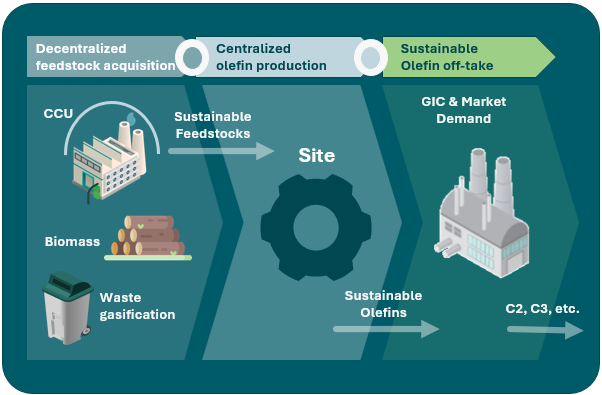Objective: This project is exploring the development of an economically viable route to sustainable olefins secured by committed offtake agreements and based on sustainable methanol feedstocks.

Relevance: To achieve net zero emissions, the chemical industry will need to explore and expand more routes to producing sustainable olefins. A critical source for these sustainable, or “green” olefins will come from sustainable methanol.
A scale-up of sustainable olefin production requires significant investments and committed offtake agreements. The Global Impact Coalition has convened interested member companies to address this challenge through the exploration of Methanol-to-Olefins technology.
This project has now spun-out of the Global Impact Coalition into a dedicated structure. Starting with a feasibility study, this marks the first step toward exploring a new methanol-based route to electro-Sustainable Aviation Fuel (e-SAF) and low-carbon chemicals in Europe.
CHALLENGES TO ADDRESS:
Massive investment needed to scale-up production
VALUE OF GIC’S COLLECTIVE APPROACH:
Shared investment splits risks and costs among participating parties
Uncertain sustainable olefin demand makes investments risky
Offtake commitment by JV partners to supply green olefins to customers
Decreasing cracker capacity in Europe leads to reduced supply of olefins, especially of sustainable olefins
Building new olefin capacity to provide alternative supply routes, focused on European market
